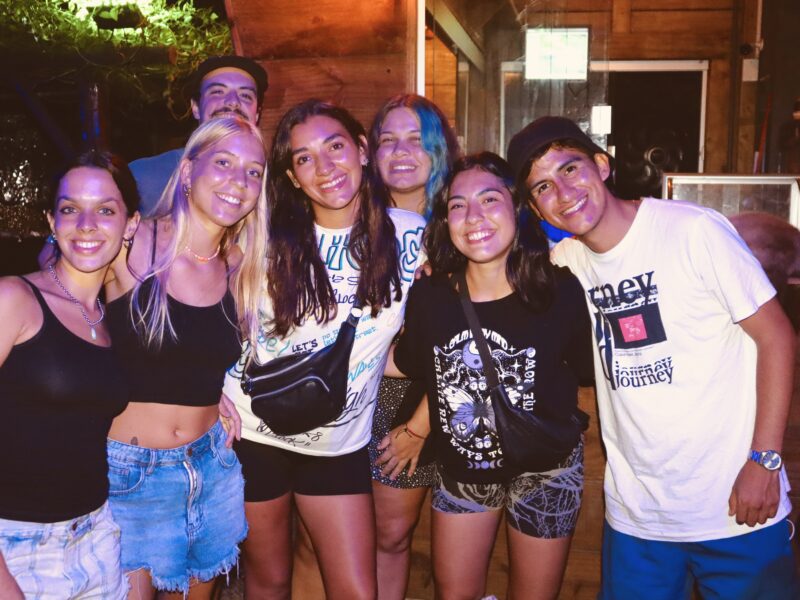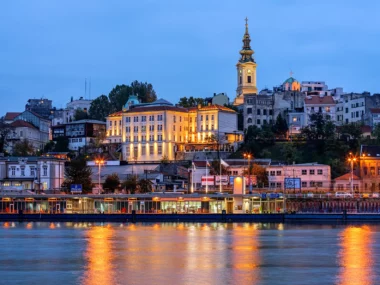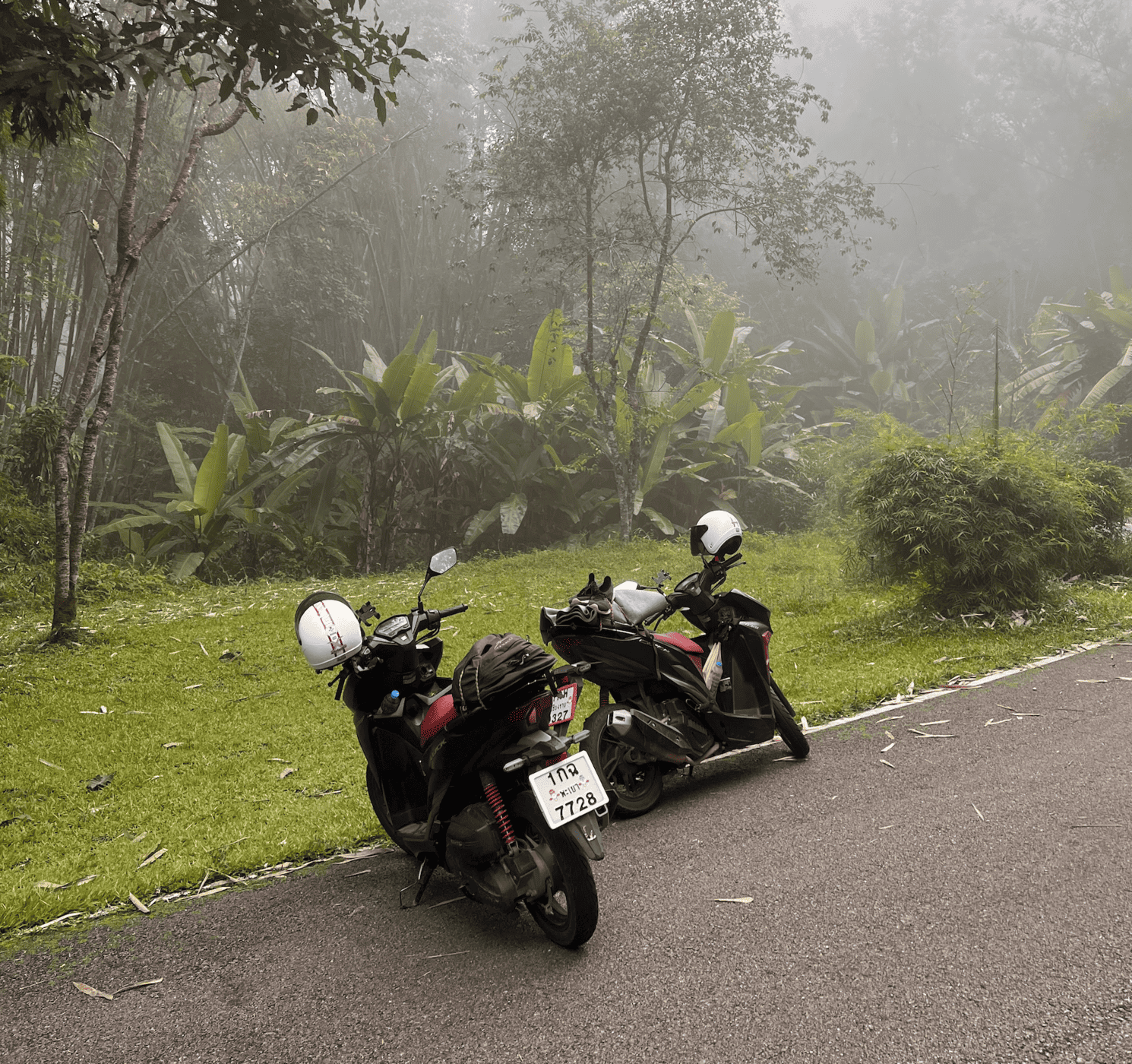Table of Contents
If you’ve been solo traveling for a while, or you’re thinking about it, you’re probably familiar with the idea of hostels.
Ah yes, those places where you might meet the love of your life (or at least your week), make life-long friends, or fight for a place in the shared kitchen. Or maybe not sleep at all because a group of 19-year-old Brits came back drunk to your room at 4 a.m.
It’s one of those things where everything can go perfectly or terribly wrong, but either way, it’ll give you stories to tell and level up your traveler lore.
Everyone’s experience is different, but after staying in hostels across five continents, I’d say most of mine have been positive. Of course, that’s if you learn how to pick the right ones and how to survive them. Here’s the truth.
Wait, But What are Hostels?
A hostel is basically a shared accommodation where travelers rent a bed instead of a whole room. Some dorms have more beds than others. They’re usually casual and social, and you might have shared spaces like kitchens, bathrooms and common areas.any hostels also offer free activities to promote a social atmosphere and closeness between guests.
Hostels are popular among backpackers and solo travelers because they’re 1) cheaper and 2) great for meeting people.
Making Friends in Hostels
I remember the first time I stayed in a hostel. I was 20 years old, in Medellín, Colombia, for the first time. Like many backpackers, I was on a budget, so I just booked the cheapest place I could find. I didn’t know much about hostel platforms, so I simply went for it.
Luckily for me, I had a great time. My roommate was a 50-year-old photographer who gave me incredible advice, and I met a group of Germans in the kitchen who became my best friends that week. We’d play guitar in the afternoons, go clubbing almost every night and kept in touch for years.

Many friends from back home ask me: “Doesn’t it get lonely to solo travel? It must be so hard to make friends.”
But honestly, it’s not! I find it harder to make friends at home than when I’m traveling.
Staying in hostels is one of the easiest ways to make friends as a solo traveler. Why? Because hostels are basically pre-school for adults. Unlike any other environment, everyone’s open to connection. You can sit down at breakfast and end up hiking a mountain with a group of strangers by sunset. Some will become your travel buddies for a week; others might turn into long-distance friends you’ll visit years later.
And if you’re shy, don’t worry. Just hang out in the common areas or join a free activity. If you don’t know how to start a conversation, here are some easy openers that I always use:
- “Hey, I like your ___ , where did you get it?”
- “That looks so good! What are you cooking?”
- “Are you going to the ___ later?”
From there, just go with the classics: Where are you from? How long are you staying? Do you have any plans? Once you get the hang of it, you’ll see how natural it feels, people usually want to socialize here.
Enjoy finding community wherever you travel? Check out our Uncharted Community and be part of the adventure.
The Chaos of Hostels
Of course, not every day is roses and butterflies. There’s also the chaos, and it’s part of the charm.
Shared dorms mean shared everything: bathrooms, kitchens, spaces. And yeah, not every hostel has privacy curtains for the beds (but if you do find one, that’s a super plus).
You’ll deal with snorers who sound like erupting volcanoes, couples who forget there are other people in the room, and that one guy who insists on packing his entire backpack at 3 a.m.
But that’s part of the deal. You learn to adapt, laugh, and let go. You’ll hate it sometimes, but when you check into a private hotel room and it’s too quiet, you’ll actually miss the noise.
Still, it all depends on the mood you’re in. There are times when my social battery is drained, and I’ll book a private room or stay somewhere quieter just to recharge. It’s all about balance and knowing what you need at that moment in your journey.
Are Hostels Safe?
I get this question a lot, especially from people who’ve never stayed in one. The truth is most hostels are very safe. As I mentioned before, it’s important to read reviews first. Many have lockers for your valuables, key-card access to rooms, and reception staff available 24/7.
If you’re worried about privacy or comfort, look for hostels with female-only dorms or private rooms, they’re super common now and perfect for solo travelers who want extra peace of mind.
As always, use common sense: keep your valuables locked, don’t leave your passport under your pillow, and trust your instincts about people and places.
Choosing the Right Hostel
Here’s where survival turns into strategy: not all hostels are created equal. Some are chill and focused on yoga or wellness; others are full-blown party zones where no one sleeps before sunrise.
My usual go-to platform is Hostelworld, but I also check Booking.com, Google Maps and Google reviews to be 100% sure. Before booking, always look at these:
- Vibe: Read reviews carefully. “Social” means fun; “Party/pub crawl” means zero sleep.
- Location: Central spots make life easier (and save you money on transport).
- Cleanliness: If people mention cleanliness in the reviews, it’s usually a good sign. Pay extra attention to what they say about the rooms and bathrooms.
- Extras: Free breakfast, coworking areas, lockers, or even privacy curtains can change everything.
My golden rule: Pick the one with the most reviews and better location, even if it costs a little bit more. Choose a place where you’d actually want to hang out, not just sleep. If you’re not sure, you can always just book a couple nights to check the vibe first.
Lessons You’ll Learn about Hostels
Hostels aren’t just cheap beds; they’re classrooms for life. You’ll learn how to share space, respect others, and trust strangers, while keeping your guard up just enough.
You’ll realize that connection doesn’t depend on where you’re from or what you do, but on how curious and open you are.
And you’ll learn about yourself: what you can handle, what kind of traveler you are, and whether you’re in a phase where you need quiet or a little bit of chaos.

The Truth about Hostels
So what’s the truth about hostels?
They’re imperfect, loud, messy, and full of life. Just like humans. They test your patience but expand your world. They make you laugh, grow, and sometimes lose sleep, but they remind you why you started traveling in the first place.
Because beyond the snoring, the chaos, and the cheap drinks, hostels hold the power of connection, often with people who’ve experienced things similar to yours, even if they come from worlds away. It’s a reminder that the world is full of people who, just like you, are looking to connect and see life beyond their hometowns.
If hostel life makes you dream of working from anywhere, check out this guide to digital nomads to see what life on the road can really look like.
What’s it really like to stay in a hostel for the first time?
It’s a mix of curiosity, culture shock, and unexpected kindness. You’ll share a room with strangers who might become friends, or at least good breakfast company. The experience usually feels more like joining a community than booking accommodation. It’s unpredictable, but that’s part of the fun.
How do people actually make friends in hostels?
It usually happens by accident. You might start talking to someone while cooking, ask about a nearby hike, or join a small group headed out for drinks. Hostels make socializing effortless because everyone is in the same mindset: open, curious, and a little bit out of their comfort zone.
Are hostels awkward if you’re introverted or shy?
Not as much as you’d think. Most hostels have a mix of social and quiet spaces, so you can join in when you want and recharge when you need to. Starting small helps like sitting in a common area with a book or asking for local tips can lead to easy, natural conversations without pressure.
How do I know if a hostel is a party hostel or a chill one?
Check the reviews and pay attention to certain words. “Lively” or “social” often means it’s fun but not wild. “Party,” “pub crawl,” or “music until sunrise” usually means sleepless nights. Photos also reveal a lot. If you see a bar as the main feature, expect noise. If you see hammocks and yoga mats, it’s probably calm.
Are hostels safe for solo female travelers?
Yes, most are, but it’s important to be selective. Look for hostels with female-only dorms, key card access, lockers, and strong review scores. Message the staff before booking if you have questions about safety or privacy. Trust your instincts when you arrive. A good hostel will make you feel comfortable from the first minute.







